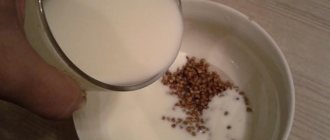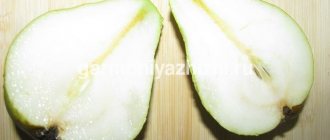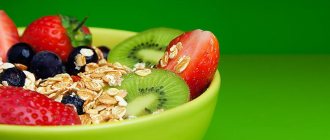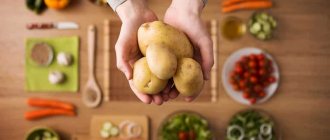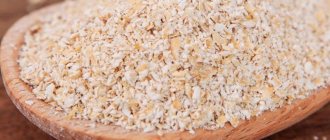A typical human eight-hour sleep is quite a long period of time. All this time the body does without water and food. It is completely normal to wake up in the morning from a long sleep and feel hungry. But the lack of hunger in the morning may indicate a violation of the optimal diet and metabolism.
Or maybe not talk about it. Not the entire scientific world is unanimously inclined towards the idea of the unconditional benefits of breakfast and its special necessity. For example, Aaron Carroll, a professor of pediatrics from Indiana, has not eaten in the morning for most of his life and is quite happy with his health. The only reason he doesn’t eat is that he feels hungry only around lunchtime, and he thinks that this is normal - why eat if you don’t want to?
Of course, there are various studies on the connection between morning meals and general health and the incidence of various ailments. But most of them are observational studies (observation without intervention), and, according to Carroll, their results can be interpreted differently. Also, the results of commissioned studies from large companies producing breakfast cereals raise doubts. However, the harm of breakfast has not been proven either.
What are the benefits of breakfast?
In the morning, the whole body feels rested, and the digestive system functions with maximum efficiency. It is in the morning that you can allow yourself some dietary liberties if you are on a diet. All the food you eat in the morning will be broken down and converted into energy.
Research by nutritionists has shown that when a person does not eat in the morning, but eats the same amount of calories throughout the day, excess weight gain occurs 50% faster! Breakfast is beneficial for humans because it stimulates the synthesis of gastrointestinal hormones, which are involved in the intensity of appetite. This was led to by the observation that a person who regularly eats heavily in the morning experiences a feeling of fullness for a longer time and eats less during the day.
Experiment: with and without breakfast
To solve this problem, specialists from Brigham Young University (USA) conducted an experiment, the diagram of which is shown in the figure:
The experiment involved 49 women from 18 to 55 years old who usually ate breakfast less than twice a week, slept more than six hours a day and always got up early. All participants had a stable weight and were healthy for 3 months. They were divided into two groups: 26 women had to eat breakfast every day, 23 made up the control group and could follow their established habits.
Breakfast, containing at least 15% of the daily calorie intake, should be eaten before 8.30 am and no later. After breakfast the ladies could eat whatever they wanted.
Participants in the control group did not eat anything or drink alcohol until 11:30.
The experiment lasted 4 weeks.
Before the start of the experiment and after its completion, the researchers determined the weight, height, BMI and fat content of the participants. Women had to record what and how much they ate per day, and during the last week they had to rate their hunger before each meal (there is a special scale for this). Every day, the participants noted how much they slept and what they ate for breakfast. They also didn’t forget about physical activity; it was determined using an accelerometer.
The results of the experiment
are presented in the figure:
In short: breakfast added an average of 266 kcal and 43 g of carbohydrates to the daily diet .
At lunch, lunch and dinner, participants in both groups consumed approximately the same amount of calories, and physical activity was also comparable. Feelings of hunger, thirst and “fullness” also did not differ between groups.
At the same time , women who ate breakfast regularly gained an average of 0.7 kg, and their BMI increased from 22.6 to 22.9 (the difference is small, but significant) . The fat content increased slightly – from 32.5 to 32.9%. In the control group (those who did not eat breakfast), weight and BMI remained stable and by the end of the experiment were significantly lower than in the breakfast group. Muscle mass in all women remained unchanged.
The harm of not having breakfast
After a long sleep, blood sugar levels drop significantly. It is necessary to replenish your carbohydrate supply as early as possible, otherwise it can negatively affect intellectual activity and ruin your whole day. Lack of a regular breakfast causes problems in children with attention span, short-term memory and decision making. The child behaves inhibited and has difficulty learning.
Scientists from Harvard believe that skipping a morning meal can cause serious health problems - the risk of cardiovascular disease increases by 27%. If you eat too much before bed, the risk of heart disease increases by as much as 55%. And as a result, not eating in the morning and overeating at night in 82% of cases leads to serious health problems.
Good morning, breakfast, or Why is it necessary to eat in the morning?
People often don't understand the importance of proper nutrition, not to mention the need to eat breakfast in the morning. This is a very big omission. Agree, everyone wants to be healthy, vigorous and live longer. I want too. One day there came a time in my life that I had to think about healthy eating, in particular, the usefulness of breakfast. It’s no secret that, alas, many people, and children very often, completely neglect their morning meal.
Why is breakfast so important, and how to have breakfast correctly? I'll start with the numbers. I like to use facts. Facts are stubborn things, you can’t shut your mouth to them.
Research by scientists has shown that those who eat breakfast have a metabolism that is 3-4% more intense than the average. And for those who systematically skip breakfast, it is 4-5% slower. It has even been calculated that in a year, people who don’t eat breakfast can easily gain 4-7 kg in weight. Imagine if such “no breakfast” becomes the norm and lasts for years...
Research also showed that, compared to those who did not eat in the morning, breakfast eaters chose less fatty and healthier foods. They could more easily cope with the desire to snack (!) on unhealthy foods at night.
The fact is that chemical reactions occurring in the brain encourage a person to eat fatty foods as night approaches. And it's no surprise that most people wake up in the morning and crave carbohydrates rather than fats. It turns out that people quite naturally reach for healthy food in the morning.
Breakfast is a very important element of our life! After all, a healthy breakfast high in carbohydrates is useful not only as a means of combating excess weight. It is also of great importance for solving another problem of people prone to obesity - diseases of the circulatory system, which often lead to disability, heart attacks and paralysis.
A short excursion into medicine.
One of the causes of diseases of the circulatory system is the so-called blood clots - dense plugs that block arteries. Blood clots form from platelets. These are very tiny particles of blood that are shaped like discs and regulate the process of blood clotting. With any disruption of the blood circulation process, platelets stick together, forming some kind of clots.
Scientists have found that in the morning the level of the factor that causes clumping in the blood was significantly higher in people who do not eat breakfast. They also found that most heart attacks and strokes also occur in the morning.
It is quite obvious that he who does not neglect his morning meal acts prudently and wisely.
We have all heard about cholesterol, which is a major risk factor for cardiovascular disease. It is breakfast that helps to significantly reduce cholesterol in the body. And not just any snack, but a full meal, preferably consisting of all kinds of cereals. By preparing a variety of cereals for breakfast, you will have relatively low cholesterol levels.
And one last point in favor of the morning meal. It may also protect you from gallstones. After all, by skipping breakfast, a person, in fact, puts himself on a small hunger strike. And any fasting increases the risk of gallbladder diseases.
Thus, if you want to cause serious harm to your health, skip breakfast and the results of such an attitude will not take long to arrive.
And finally, a few points about breakfast.
Just start eating breakfast. Not from Monday, not from January 1, but next morning. Try not to react to lack of appetite, but purposefully eat in the morning for 1-3 weeks. You will hardly notice how quickly such an important habit will develop!
Eat less at dinner and stop snacking at night. Not everyone abuses this, but there are plenty of such people. By getting rid of these habits, you will wake up in the morning hungrier and experience a natural need for food.
Give preference to porridge. Any breakfast is undoubtedly better than without it. And train yourself to eat more cereals. Choose a type of cereal that is low in fat and high in fiber. You can add pieces of fruit to improve the taste.
A small digression from this point. Since I am not a fan of milk porridges, I prefer to prepare muesli in the morning. In our family, we have not bought ready-made muesli for a long time, but make it ourselves. How? We take an equal amount of oatmeal and buckwheat flakes (my husband prefers only oatmeal!), add nuts (usually unshelled peanuts or walnuts), as well as dried apricots, raisins from white grape varieties, and some dates. Mix all these ingredients in advance and store in a dry place. Every morning begins with a glass of water 20-30 minutes before breakfast, then half a glass of muesli is steamed with boiling water and infused for several minutes. All! Breakfast is ready. Nourishing and healthy!
You may argue that you will not be satisfied with this amount. It’s better to have such quantity, not to mention quality, than none at all. At first, until a habit is developed, the body may be capricious. But then you will be proud of yourself: “Now - now I have developed a healthy habit and, as a result, I expect my health to improve!” And believe me, you will receive “gratitude” from your body.
I wish you the best health and long, long life! And also - let joy and happiness fill your home!
How to get used to eating breakfast
How to train yourself to eat every morning?
- First, you need to accustom yourself to a stable sleep schedule. Chronic lack of sleep can negate the benefits of any balanced diet.
Learn to get up at least an hour and a half before school or work so that you can leisurely do all your morning chores.
- A glass of water, a contrast shower and light exercise will finally wake up your body and stimulate your appetite.
- Prepare your food the night before and you won't have to waste time on it in the morning.
- Make yourself a list of dishes and try to stick to it. Noticeable benefits from a proper diet will only be achieved with a balanced selection of food products.
- If you have no appetite at all in the morning, then try to move your dinner to an earlier time, drink more water and divide your morning meal into several small meals. Within a month, the body should get used to and adapt to the new diet.
- Among the foods that are considered healthy, choose those that seem most delicious to you, and do not force yourself to eat what you do not like. In this case, the need to have breakfast will not cause you mental discomfort.
What to have for breakfast
If you don’t adhere to a specific diet, here are some universal options for a tasty and healthy breakfast:
- Yeast-free bread - yeast is a very questionable product of the food chemical industry, and its consumption can be harmful to health.
- Cottage cheese - contains calcium and phosphorus, necessary for healthy hair, nails and a strong skeleton.
- Omelet – Eggs contain vitamin D and vitamin A.
- Vegetables.
- Fruits are a good source of both vitamins and fast carbohydrates.
- Porridge – oatmeal, wheat, buckwheat, barley. It is best to cook porridge with milk, but you can also use water. Add fruits and berries for taste.
- Corn and multigrain flakes, but always without sugar. Sugar is replaced with honey. The cereal can be consumed with milk or yogurt.
- Sandwiches with boiled chicken breast and boiled beef will replenish iron and B vitamins.
